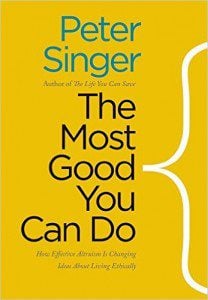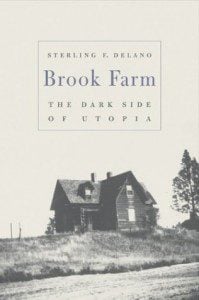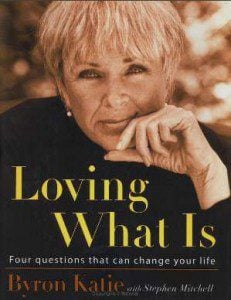Last week I had the opportunity to attend the annual Emergent Village Theological Conversation. Emergent Village seeks to embody and practice what they call “generative friendship,” which includes a commitment to maintaining relationships over time despite a diversity of theological beliefs and practices. The name “emergent” itself alludes at least in part to an openness to new ways of talking about God, new ways of doing church, and new ways of being Christian that are emerging today in exciting and challenging ways. The goal of the annual Emergent Village Theological Conversations is to bring world-class Christian theologians into dialogue with practitioners who are on the ground leading and participating in local congregations.
to embody and practice what they call “generative friendship,” which includes a commitment to maintaining relationships over time despite a diversity of theological beliefs and practices. The name “emergent” itself alludes at least in part to an openness to new ways of talking about God, new ways of doing church, and new ways of being Christian that are emerging today in exciting and challenging ways. The goal of the annual Emergent Village Theological Conversations is to bring world-class Christian theologians into dialogue with practitioners who are on the ground leading and participating in local congregations.
This year the theme of the Emergent Village Theological Conversation was Process Theology. Many of you will recall that last year for Lent, we studied Bruce Epperly’s book Holy Adventure, which is an attempt to make Process Thought accessible. And Bruce was one of the presenters at the conference. I would like to briefly remind you of one of the most crucial passages in Bruce’s book. He is attempting to offer a progressive, life-giving alternative vision to evangelical mega-church pastor Rick Warren’s bestselling book The Purpose Driven Life:
Warren charts a road map in which God chooses the most important events and encounters of our lives before we are born and without our input. Our personal calling, according to Warren’s vision, is to discover and live out God’s eternal purposes in our daily lives. We can find our true purpose only when we follow the directions and color inside the lines that God has already planned for us. (21)
In contrast, Epperly says,
I believe God’s holy adventure calls us to be creative and innovative right now as we listen for divine inspiration, and then to respond by coloring outside the lines and giving God something new as a result of our own personal artistry….. God calls us to become creative companions in God’s new and surprising creation.
Instead of fear-based, anxiety-inducing theology, Epperly invites us to embrace our free will with creativity and imagination. Rather than conforming to a narrow, preordained path, Epperly’s perspective calls us to an ongoing, co-creative adventure in partnership with God. Or as another presenter said, “God is always calling, always hoping, always birthing something fresh.”
According to Rick Warren as well as some streams of traditional Christian theology, we should understand God, ourselves, and our lives through the lens of divine control and divine sovereignty — and our call is to be obedient to a preordained path. Process Thought, in contrast, as you may well guess, emphasizes the process of life: that the human experience is messy, complex, and part of an ever-evolving, emerging, organic process.
For me, one of the major appeals of Process Theology, which is also sometimes calls Process-Relational theology is that it draws from the best of Christian theology as well as the insights of the best of modern science and the world’s various religious and wisdom traditions. By emphasizing process and relationship, Process-Relational theology can importantly help us to perceive some of the traps of modernity and point us toward life-giving ways out of these traps. Secularism in the modern world has often taught us to perceive the world around us as a collection of isolated parts that all interact like a machine. But, learning from quantum physics and evolutionary biology, Process-Relational thought invites to notice the ways that our lives are part of an ever-evolving process and the ways in which we are all deeply interrelated and interdependent.
A panelist at the conference speculated that one reasons Process-Relational Thought is not more well-known in Christian circles is the fear and anxiety in some Christian circles that modern science undercuts traditional Christian doctrines. But Process-Relational Thought challenges us to do theology in light of the fullness of truth in all fields of study to which we have access here at the beginning of the twenty-first century. Process-Relational Thought is also highly critical of attempts by some scientists to exclude spirituality as irrelevant to the modern world. While rejecting the topdown divine control that Rick Warren promotes, Process Thought retains a vital place for God, who steadfastly lures and prompts us toward justice, beauty, and creativity. But God acts through persuasion, not coercion. We are free to choose whether to partner with God or not, although we must live with the consequences of our decision.
The emphasis on our free will and responsibility as well as on God working through persuasion, not coercion, is significant for one of the most important advantages of Process-Relational Thought: a way of understanding the problem of evil. The problem of “why evil exists” is complicated by some traditional notions of God. In some Christians theologies — influenced more by Greek philosophy than the Hebrew Scriptures — God is conceived as omniscient, omnipotent, and all-loving. If God is omniscient (“all-knowing”), then God knows about the existence of evil. If God is omnipotent (“all-powerful”), then God has the power prevent evil if God so chooses. And if God is all-loving, then God would want to prevent evil. Critics of religion have often tried to skewer God on the horns of this three-pronged “tri-lemma.” But Process-Relational Theology solves the problem of evil by inviting us to consider that perhaps God is not omnipotent in the way that Greek philosophy thought that God had to be. Instead God acts through persuasion, not coercion. As one presenter said, “Process spreads the blame a little bit better and spread the agency a bit better too.”
I first heard about Process-Relationship philosophy when I was an undergraduate religion major. I had been assigned to write a paper on the doctrine of the Trinity for an Introduction to Christian Theology class. When the professor handed back my paper, he said that he enjoyed reading it and that I might appreciate reading some Process Theology. But when I asked him about it later, he was oddly evasive and cagey. In retrospect I think that he was worried, in the environment of my relatively conservative and historically Baptist college, that I would be scandalized by the challenge of Process Theology. But I wish he had taken the risk of giving me a specific book or two to read because it was many years later before I fully immersed myself in Process-Relational thought.
Although some Christians are disturbed that Process-Relational Theology denies God’s omnipotence, many Process thinkers double-down on God’s omnipresence. Whereas some traditional theologies describe God as only periodically — even haphazardly or capriciously — present (for example, healing some people and not healing others; stopping some car accidents, plane crashes or natural disasters, but not preventing others), Process Theology emphasizes that God is in, with, and beyond all things. Just as you can’t be a little bit pregnant, one presenter said, “You can’t be a little bit omnipresent. You either are or you aren’t. If God is here and in all things,” then in addition to church sanctuaries, all “Bricks and mortar are holy, everyday activities are holy, and spreadsheets are holy — maybe even as holy as the Eucharist.” Extending this point, another panelist said that the full implications of Process-Relational thought may be that, “God is equally in Prozac, therapy, and Eucharist.”
If you’re feeling a bit down the rabbit-hole of Alice in Wonderland at this point, you may be comforted to know that one of my fellow participants at the conference, after listening to many of the presentations, commented that, “Sometimes I wish I would have chosen the blue pill…” He was referring to a scene from the film The Matrix in which the protagonist Neo (played by Keanu Reeves) is told by his mentor that he can take either of two pills (red or blue). Extending the two pills in his palm to Neo, his mentor says, “This is your last chance. After this, there is no turning back. You take the blue pill — the story ends, you wake up in your bed and believe whatever you want to believe. You take the red pill — you stay in Wonderland and I show you how deep the rabbit-hole goes.”
[To watch the central 30 seconds of this scene from The Matrix, visit
http://www.youtube.com/watch?v=uGQF8LAmiaE.]
If you feel like you’ve swallowed the red pill a little bit this morning, let me reassure you that there is both challenge and hope in Process-Relational Thought. The good news is that it gives us permission, as one presenter said that, “If your theology doesn’t bear fruit, then…you should turn to your theology and say, ‘Your fired!” However, Process thought is most assuredly not merely about rejecting obsolete theology. It is about the hard work of constructing a theology that is worthy of this world, our personal experience, and the twenty-first century.
In closing, I invite you to enter into a time of contemplative silence.
How God is speaking to you in this ever-emerging present moment?
What is good news to you about Process-Relational Theology?
For Further Study
- Carl Gregg, “Living the (Hardest) Questions: What If God Is Not “Fully and Unambiguously Good?”: A Process Theology Sermon.”
- John B. Cobb, A Christian Natural Theology, Second Edition: “When the first edition appeared in 1965, it was a groundbreaking work that incorporated the metaphysical philosophy of Alfred North Whitehead (1861-1947) as a framework for developing a Christian natural theology. The work was so significant it helped to launch process theology as a leading alternative to neo-orthodox theology and has since become a classic in the literature of process theology.”
- David Ray Griffin, Reenchantment Without Supernaturalism: A Process Philosophy of Religion (Cornell Studies in the Philosophy of Religion).
- Catherine Keller, On the Mystery: Discerning Divinity in Process.
- See also the important books references in the notes section below by Coleman, Epperly, and Clayton.
Notes
1 For more on Emergent Village and future events, visit http://emergentvillage.org.
2 “Emergent” — There are also fascinating parallels between the “Emergent Church Movement” and the concept of “Emergence” in biology. For more, see “Part Two” of Philip Clayton’s Adventures in the Spirit: God, World, Divine Action.
3 To go deeper into Process-Relational Thought, see Bruce Epperly’s recent introductory book Process Theology: A Guide for the Perplexed.
4 “God is always calling, always hoping, always birthing something fresh.” — Monica A. Coleman. For more, see her book Making a Way Out of No Way: A Womanist Theology (Innovations: African American Religious Thought).
5 “Process spreads the blame a little bit better and spread the agency a bit better too.” — Monica A. Coleman.
6 “Bricks and mortar are holy, everyday activities are holy, and spreadsheets are holy — maybe even as holy as the Eucharist.” — Bruce Epperly, who was explicitly invoking and contemporizing Brother Lawrence of the Resurrection’s classic book Practicing the Presence of God: Learn to Live Moment-by-Moment.
7 “God is equally in Prozac, therapy, and Eucharist.” — Monica A. Coleman.
8 “If your theology doesn’t bear fruit, then…you should turn to your theology and say, ‘Your fired!” — Bruce Epperly.
The Rev. Carl Gregg is a trained spiritual director, a D.Min. candidate at San Francisco Theological Seminary, and the pastor of Broadview Church in Chesapeake Beach, Maryland. Follow him on Facebook (facebook.com/carlgregg) and Twitter (@carlgregg).












